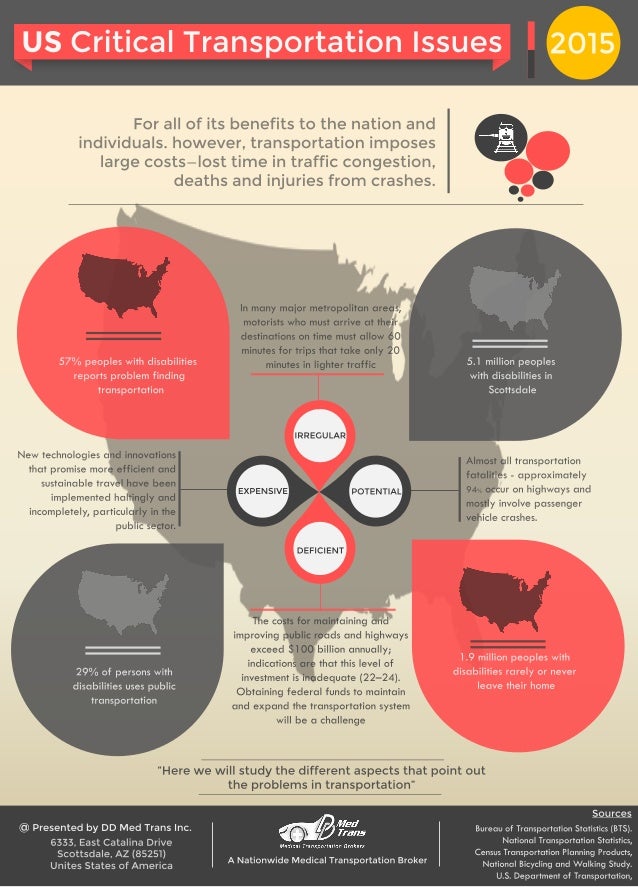Practically Transportation brings such a change
in our life standards. Present transportation privilege creates circumstances
for getting access towards the destination places easily and quickly. The
United States civilian depends upon the transportation not only to get to the
work but to participate in different social activities as health care access,
going for shopping, acquiring education facilities, employment opportunities,
so on.
From all of its benefits to the nation, however,
transportation inflicts higher expenses/cost and ruins the precious time in
busy traffic congestion, increasing injuries and deaths due to road accidents
or crashes. These facts determine the query for introducing some special transportation facilities that will be able to
support lower incomes groups and senior citizens for making their health goals
achievable.
The following discussion highlights information
developed in recent reports by TRB and other divisions of the National Research
Council. Here are the most episodic topics that make the transportation more
terrific:
@ IRREGULARITY:
The performance of the transportation system is
neither reliable nor resilient, yet transportation’s role in economic revival
and in global economic competition has never been more important.
In
many major metropolitan areas, motorists who must arrive at their destinations
on time must allow 60 minutes for trips that take only 20 minutes in lighter
traffic
@ POTENTIAL:
The nation suffers significant, avoidable deaths
and injuries every year, although safety has improved markedly.
Almost
all transportation fatalities — approximately 94% occur on highways and mostly
involve passenger vehicle crashes.
@ DEFICIENT:
Inadequate funding sources for public
infrastructure impede the performance and safety of the transportation system,
but alternative sources of funding may place a larger financial burden on users
who are least able to pay.
New
technologies and innovations that promise more efficient and sustainable travel
have been implemented haltingly and incompletely, particularly in the public
sector.
@ EXPENSIVE:
The costs for maintaining and improving public
roads and highways exceed $100 billion annually; indications are that this
level of investment is inadequate (22–24). Obtaining federal funds to maintain
and expand the transportation system will be a challenge.
Sources:
Bureau of Transportation Statistics (BTS).
National Transportation Statistics,
Census Transportation Planning Products,
National Bicycling and Walking Study.
U.S. Department of Transportation,

No comments:
Post a Comment